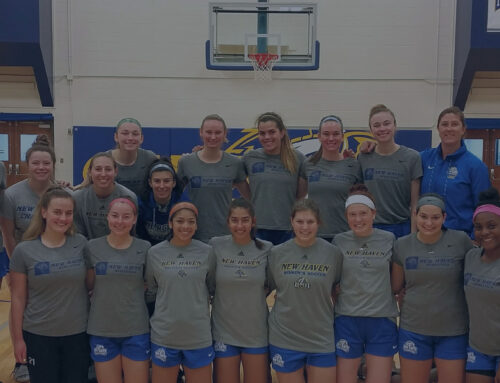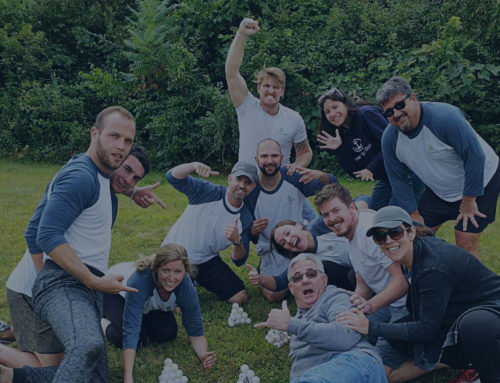Leadership Lessons: The Olympics
As the Tokyo Summer Olympics are (finally) upon us, a unique opportunity to see some of the most impressive feats of both individual and communal leadership in live action presents itself. The Olympic Games are a marvelous spectacle that allow only a brief moment for a person to showcase a passion they have dedicated their entire lives to, and allow us a brief look into their stories. There is so much to learn from these incredible athletes that such an opportunity should not be wasted!
What is it that makes an Olympic athlete? Surely, the list is a lifetime long, and it would be too difficult to capture all the little moments of sacrifice and hard work that make up this answer. However, in the spirit of the Games, let’s give it our best shot.
Heart: Generally, years and years of unending preparation are required to master your craft to a level that puts you among the world’s best. In this example, however, let’s take a look at Anna Kiesenhofer, the Austrian cyclist. Unlike many other Olympians, Kiesenhofer only took up the sport in 2014, and hadn’t raced for a professional team since 2017. Despite a modestly successful career, she was not considered to be a threat to the more experienced teams when it came time for the Women’s Road Race in Tokyo, a grueling 147-meter trek through tough terrain. There were 67 total cyclists from 40 different nations, and Kiesenhofer said that she would have been happy had she even landed a top-25 finish. Despite all the odds stacked against her, she found it within herself to push harder than anyone else that day, put her country on her back, and finish the race in under 4 hours, claiming the Gold and knocking off the superior Dutch team. She won the first Olympic Gold medal in a Summer Olympics for Austria since 2004 and the first cycling Gold for the nation since 1896. “I had a plan to attack,” Kiesenhofer said. “I didn’t plan to win, but I wanted to leave my life on the road.” That she did, and congratulations to her for her unbelievable drive to succeed despite all odds!
Preparation/Resilience: Our next example is a competitor with quite different expectations. Katie Ledecky, considered by some to be the greatest female swimmer of all time, now holds 6 Olympic Gold medals and 14 (!!!) World Records. Also note that is only as of the writing of this blog. She may win more by the time the Games have concluded. Ledecky is considered the favorite to win Gold in almost every event she is participating in. Enter 20-year-old Ariarne Titmus from Australia, an up-and-coming powerhouse in the swimming world. In the first two events Ledecky and Titmus competed against each other, Titmus shocked Ledecky and the world, and took Gold in the 400- and 200-meter freestyles. After Ledecky took Silver to Titmus in the 400-meter, she failed to even medal in the 200-meter freestyle, coming in 5th as Titmus was golden for a second time. Ledecky had come in first in the preliminary heats in both events prior to the Games. The weight of expectations can sometimes be crushing (see: 2007 New
England Patriots, 2011 Miami Heat, or the Soviet Union hockey team in the 1980 Winter Olympics). Ledecky, however, had been here before. As all great champions do, she relied on her years of preparation and dug deep within herself to win Gold in the 1,500-meter freestyle, claiming the 6th Gold of her career. She relied on her training, her “big-game” experience, and her resilience to set aside the pressure and become a world champion once again. Congratulations to Ledecky on another massive Olympic achievement!
Consistency: Oksana Chusovitina is our next feature. While not a particularly heavily decorated Olympian (one Gold and one Silver in her career), she stands as one of the most impressive athletes of all time. In Tokyo, Chusovitina competed in her 8th-straight Olympic Games as a gymnast. Her initial appearance was in the 1992 Barcelona Summer Olympics. At 46 years old, her first Games occurred well before the birth of current phenom, Simone Biles. Due to the unbelievable stress the sport puts on the body, most gymnasts retire from performances in their early- to mid-twenties. Let’s let that sink in for a moment. When Chusovitina performed her final vault at the Tokyo Games and announced her retirement, we waved goodbye to one of the most consistent and incredible athletes the world will ever know. A tip of the cap from us to an all-time legend!
Support System: One thing all of the athletes above, and at the Games at large, have in common is access to a strong support system from their families to their coaches to their fellow athletes. The self-leadership required to be one of the greatest athletes in the world does not happen without the help and support of those who believe in you. Stephanie Handojo, a Down syndrome athlete, was 9 years old when she almost drowned at a local swimming competition. After the incident, she developed a phobia of the water and refused to swim or even get near a pool. Only her mother could convince her to re-enter and give it another try by literally standing with her in the water wherever she went. After half a year of fighting her phobias, she was able to swim 50 meters independently. Her family and her coaches stood by her every step of the way, and she always took immense pride in the Special Olympic athletes’ oath: “Let me win. But if I cannot win, let me be brave in the attempt.”
Handojo would go on to strive and compete at the highest level, culminating in a Gold medal at the 2011 Special Olympics World Summer Games in Athens, Greece for her home country of Indonesia. Her inspiring performance led to her being selected as a torch bearer for the 2012 London Games Opening Ceremony. Grateful for those who supported her along her journey, Handojo turned her sights on new accomplishments. Special Olympics Indonesia funded her training in public speaking and leadership skills. She now speaks to the kindness and inclusivity movement in Indonesia, preaching patience, love, and the casting aside of judgement. Among her many skills and
passions nationwide, she also helps manage her family’s laundry business, supporting those who once supported her. None of the athletes at these Games would be where they are without stories like Handojo’s. Leadership is more than an individual accomplishment. We honor and acknowledge those who pave the way for others. Their sacrifices are admired by us all when a Gold medalist hears the anthem of their nation played in front of the world.
In conclusion, what “makes” an Olympic athlete is hard to define because each individual competitor has their own story and their own unique blend of the factors that drive them. What they have in common, however, is that greatness comes down to a refusal to give less than everything they have, both on the field of play and in their preparation and mindset. Further, though, they compete for more than individual honor. They compete for their families, their coaches, their friends and teachers, their communities, the athletes who came before them, and their nations.
“Citius, Altius, Fortius” is a Latin phrase that means “Faster, Higher, Stronger”. The International Olympic Committee adopted this phrase in the year 1894 as the official motto of the Games. Ahead of the 2021 Games, IOC President Thomas Bach announced the first change to the motto in 127 years. It’s a simple change, but it speaks volumes, and gives a fuller representation of what the Games stand for in our modern times. “Citius, Altius, Fortius – Communis”
“Faster, Higher, Stronger – Together”





